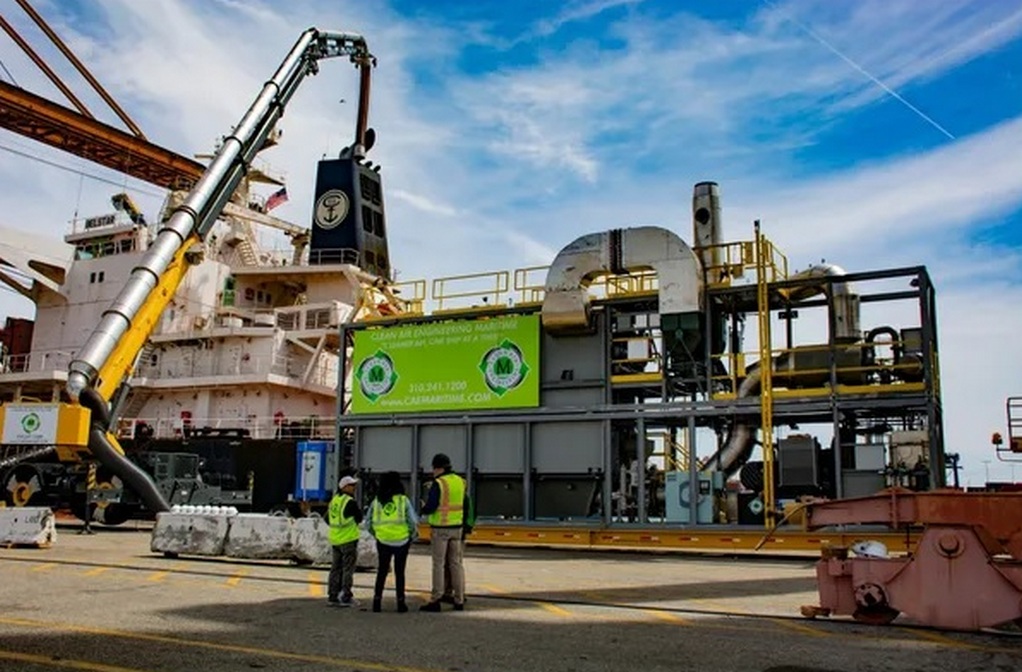Clean Air Engineering–Maritime has received approval from the California Air Resources Board (CARB) for its latest vessel stack exhaust capture and treatment system, the ShoreKat. This shore-based technology is designed to reduce emissions while minimising the impact on vessel performance and operating costs.
The ShoreKat technology is an air pollution control system that removes particulate matter, nitrogen oxide and other harmful pollutants from exhaust gasses produced by ships and other marine vessels. The technology uses ceramic filters as part of its process to capture and treat pollutants from exhaust gas before it is released as clean air into the atmosphere.
The standalone and self-powered system can be customised and modified to fit any ship’s funnel. As a mobile shore-based system, it can be placed into position to avoid interfering with ship assist, bunkering or cargo handling. It can be placed before a vessel arrives and begin service immediately, operating the entire time the vessel is in port, removing tons of harmful toxins from communities surrounding port complexes.
The approval concludes a CARB-sponsored grant project issued to Pasha Terminals LP as part of the Green Omni Terminal Project in the Port of Los Angeles.
Tags: CARB, Clea Air Engineering, Scrubber



Recent Posts
Port of Brisbane Unveils Vision 2060 to Drive Smarter, Cleaner, and More Connected Future
Wärtsilä to Deliver Hybrid Propulsion Systems for Vertom Group’s New Low-Emission Vessels
Latvian port receives electric Konecranes Gottwald Mobile Harbor Crane
Sustainable Ocean Economy Vital for Human Development, Says UNDP at UN Ocean Conference
Green Hydrogen Costs in India Could Drop by 40%, Says IEEFA-JMK Report
Cavotec Secures €1.55 Million Shore Power Contract for Port of Antwerp-Bruges
APM Terminals and SANY Marine sign landmark agreement to accelerate decarbonisation
The Port of Gothenburg takes big step towards shore power connection for container and car/RoRo vessels